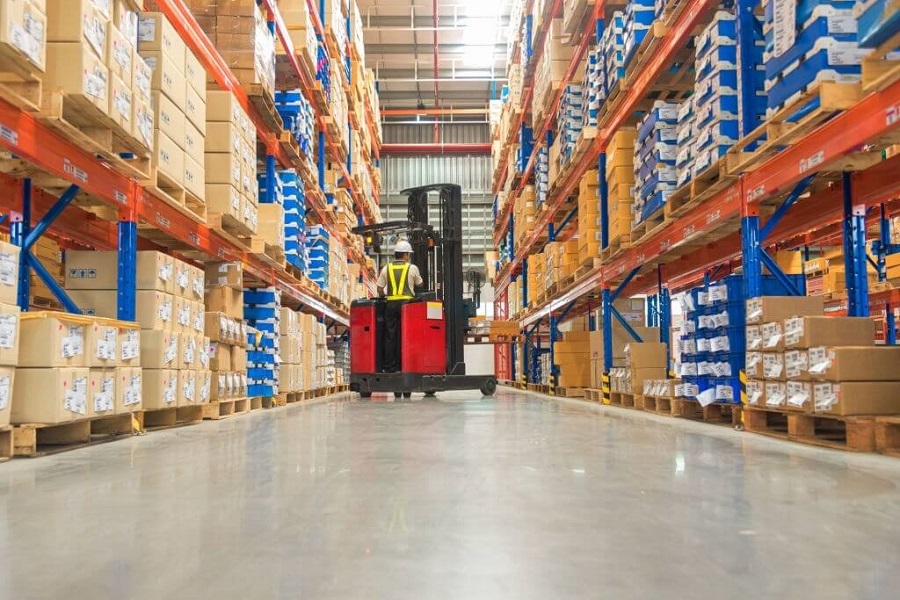What are Third-Party Logistics Advantages and Disadvantages
Table of Contents
Lately, a lot of effort has been made to point out the Third-Party Logistics’s exact meanings (3PL). The concept is usually defined as a multi-purpose marketing organization in transportation contracts.
The 3PLs act as the third parties when contracts for the transportation of products generally include one transporter and one carrier at that point, a 3PL acknowledges shipments from a customer and helps to oversee those products and load them to a suitable carrier.
Choosing the Right Option:
Regarding logistics, numerous organizations find that outsourcing isn’t just the most cost-productive methodology yet, also the best strategy so far.
Logistics service suppliers are specialists in their field and should realize how to get the best and productive outcomes. In case one business has decided to utilize an external supplier for logistics services, it is important to choose the right PL for the specific assistance.
Understanding the different PL logistics differences is an essential crucial move toward assessing, which would better upgrade your business’ supply chain operations.
What Services Does 3PL Offer?
3PL suppliers have extended their domain and include numerous sorts of organizations offering different logistics services, including:
- Transportation
- Warehousing
- Cross-docking
- Inventory administration
- Bundling
- IT solutions
- Customs brokerage
- Freight forwarding
- Contract management
- Picking and packing.
Today, the standard acknowledged meaning of a 3PL supplier is a subcontractor expert in these logistics operations and transportation management.
How Does 3PL Work?
In a 3PL model, a manufacturer oversees the supply chain but re-outsources their transportation and logistics tasks to a 3PL provider. Third-party logistics, or 3PL, is like 4PL from multiple points of view; however, it varies in some key regards. For instance, a 3PL supplier working for a farm may bundle and store raw material and then shipping it to a market. 3PL service providers fill in as mediators among makers and retailers.
Advantages of Third-Party Logistics (3PL)
In the current economy, it is critical to keep up with the pace of technological advancement. While this sounds somewhat basic, there are different segments, if not paid attention to, leading to an organization’s failure.
It can make use of the existing logistics framework. 3PL permits you to experience a partner that can fill in as a counselor for another market. Other benefits you can expect from a 3PL include:
Lesser Operational Expenses
3PL organizations have strategic logistical frameworks, programming support, and practices to rapidly improve shipping efficiency. They reduce the expenses of the in-house logistics team, which pay daily bases.
Less Burden on a Business
Taking the assistance of a 3PL reduces the burden on the producer and eventually pushes it onto the 3PL organization with some expertise in this industry.
Organizations having more extensive networks have to perform multiple activities, due to which they sometimes have to struggle with carrying out all the jobs at once.
It helps outsource logistics operations to another organization while permitting it to utilize its assets and information on its essential functions.
Efficiency in Operations
3PL organizations offer better services in the logistics field as compared to the organizations that need it. Their focus is to give support and make the operations more efficient. This is the thing that they are experts in. They have better insight, expertise, and innovation that different organizations need.
Adaptability
3PLs are the ideal answer for organizations that need scalability alternatives. Organizations need the opportunity to scale the size of their organization when the demand increases. This is particularly appropriate for new organizations as 3PL can help use economies of scale.
Higher Adaptability:
The present complex nature of business expects organizations to focus on having qualities that could lead to a competitive edge in the market. It requires to adjust quickly to the ever-changing industry situation.
Worldwide organizations have a broad supply chain and distribution organizations; however, there is a great deal of multifaceted nature associated with the organizations’ administration.
The use of services offered by 3PL suppliers permits the organizations to work all the more flexibly and react quicker to the changing customer requests and demands.
While 3PL can improve your activity drastically, there are additionally a few disadvantages to using this choice.
Disadvantages of Third-Party Logistics (3PL)
Analyzing the loopholes related to 3PL may lead to better and efficient manufacturing operations as these drawbacks may rely upon the organization’s requirements and objectives.
If you choose to move operations to a 3PL company, you may lose the skill and framework you wish to create. Other disadvantages may include the following.
Lack of Common Ground
One can face hurdles in finding a reliable 3PL. Once in a while, it tends to be hard to find a 3PL organization that can cooperate with a business on mutual objectives.
To increase your logistics abilities, efficiency objectives should be set and Ensure the organization you enlist is good at communication; this is an association where the two sides need to team up or the two of them can cafe grave consequences.
Dependency
Giving the authority of strategic operations to an outsider implies that you should take on an enormous responsibility. Each association needs a strong structure to thrive and accomplish great business results. When you rely on a 3PL supplier, you will hand off the control of your logistics operations to them. This builds your dependency on them. It is important to ensure the most trustworthy and dependable supplier.
Restricted insight
Embracing a 3PL may sometimes mean letting go of some control of your reputation and customer care services. Giving over your logistics activities to another business implies that you won’t have direct authority over what’s going on. You can consistently impart and talk with your partner, yet you don’t have genuine oversight.
Complexities in Reverse Logistics:
There are a few complexities related to reverse logistics; the organization may have to face while using 3PLs to oversee supply chain and logistics.
Reverse logistics alludes to the arrangement of exercises that follow present deals and are related to recovering an incentive to end an item’s existing pattern.
For the most part, it includes the arrival of the item to the producer or the wholesaler or sending it for overhauling, repair, or reusing and removal.
The most significant disadvantage and hurdle that manufacturers have to face is conveying the products to a 3PL and believing that they will deal with it properly.
Other supply chain organizations keep control of their stock and don’t let other parties involved, which is why some of them quit this choice.
There are additionally different choices relating to why you might not have any desire to pick 3PL, which incorporates trying to construct your very own distribution network or abstaining from paying another organization to deal with your stock.






